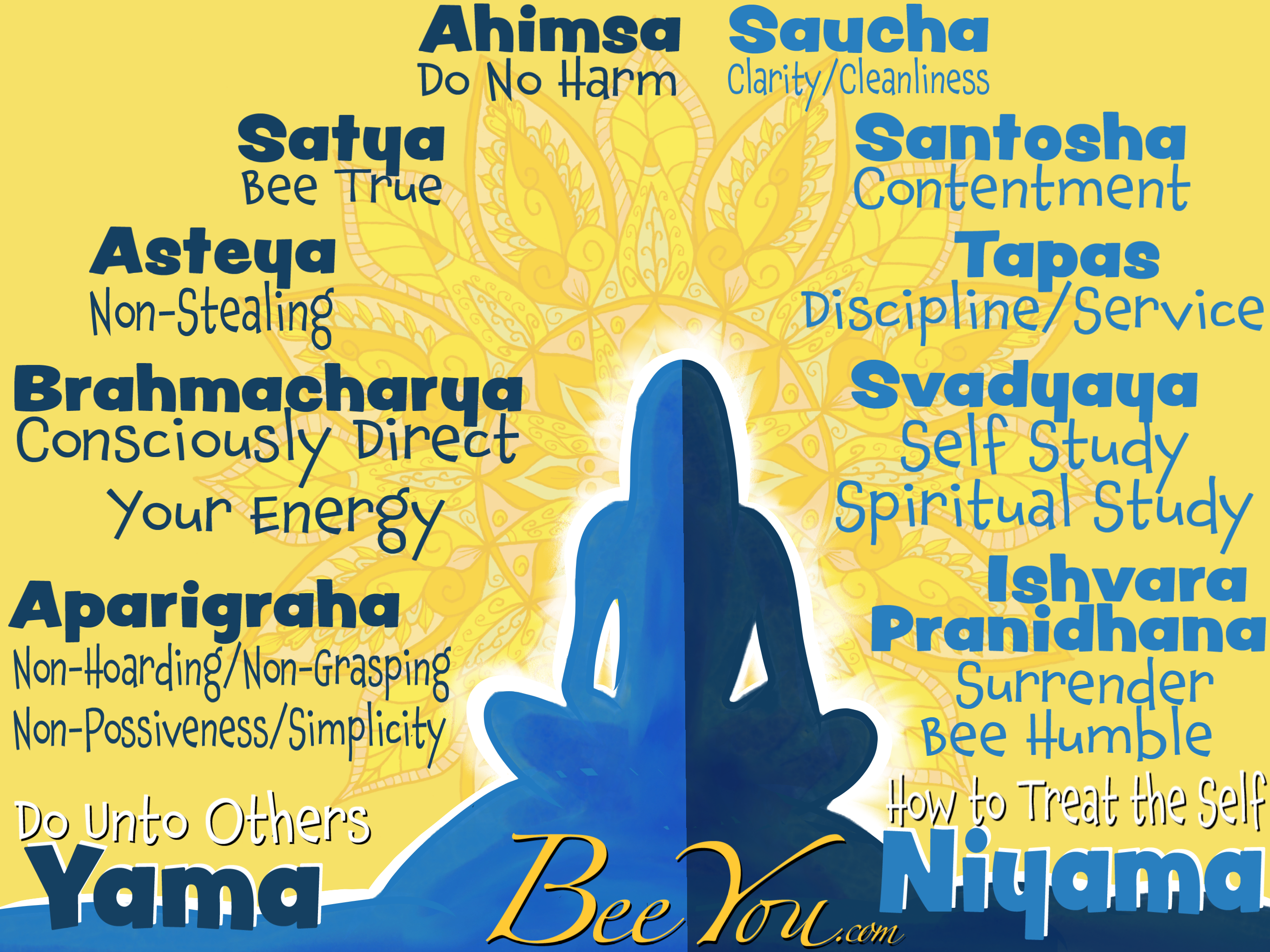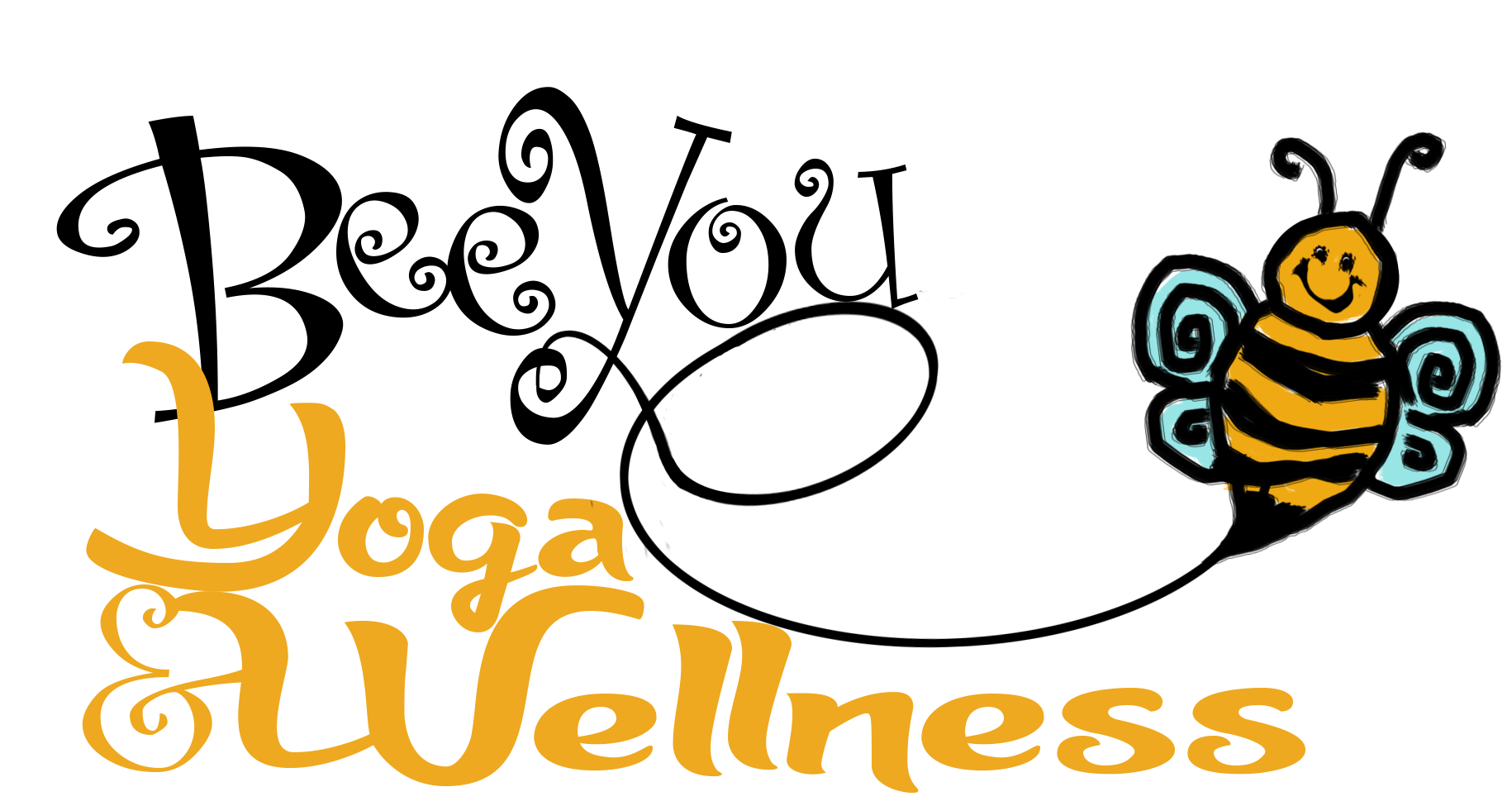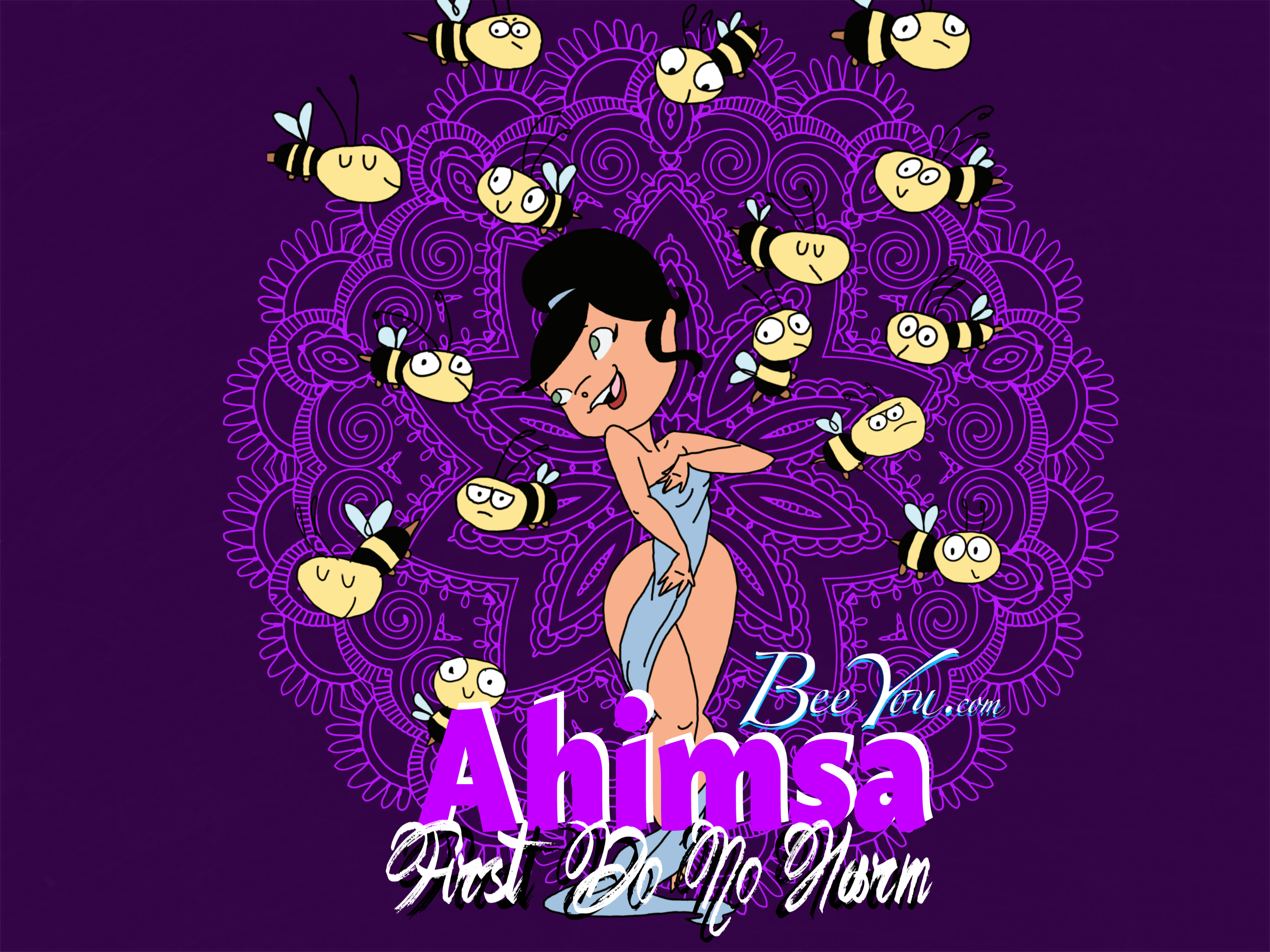The teachings of yoga have ethical principles that help guide us to a more comfortable way of living. Ethical principles need not be strict rules by which we judge the actions of others or something that divides us into “good” vs. “evil”. This guide provides a helpful method to break up the human experience and set us on a path that will provide more comfort in our everyday lives.
I often re-read these teachings, over and over, and seek out other people’s interpretations. I find that revisiting these teachings often highlights new ways I can incorporate them into my day to day life as I change. The following are some of the ways I have found to work for me.
The teachings are broken up into 2 parts, Niyama: how to treat ourselves and Yama: how to treat others. Each has 5 parts. The texts are written in an ancient language and have been through many translations into other languages and modern interpretations. It helps to open our minds to the more general message and how it might fit into our own modern life rather than trying to squeeze ourselves into someone else’s version of perfection or rules. The ancient language in which these texts were written is far more based on sound and vibration, more poetic than current language. Each word has many translations and many do not easily translate into current languages. It can be helpful to not get too caught up in the cognitive desperation for being exact and allow a more overall and deeper sense of the message to be absorbed. Listen with your innermost self and not so much your thinking mind. “Take what you need and leave the rest” but also invite the idea that at some other point in your life there may be new nuggets of wisdom that pop out that you may not have seen before. Look with fresh eyes and an open heart.
Yama: Do unto others
For me, this is the most helpful principle for a more comfortable life. If at any time when we pause before choosing words/actions in our lives and ask ourselves if this will likely do harm, our lives and the lives of those we interact with will immediately improve. It sounds simple but it requires much practice and self-reflection. When I mention self-reflection I do not mean ruminating on how we did something wrong and judging ourselves. It requires the practice of getting to know ourselves through the many techniques offered in a yoga practice so that we can more easily find that pause before action that is required to consider possible harm to another. I practice getting to know what physical response is present when I am feeling emotionally volatile. I try to recognize this physical reaction so that I am able to find a pause before allowing emotion to control my response to a situation. For example, I am driving and another driver causes a dangerous situation in which I have to immediately react for safety. In avoiding an accident I am then left with the hormonal response to stress present in my body. Without attention and knowledge of how this response feels in my body, the rest of my day might be entirely spoiled by a cycle of aggressive responses to everyday occurrences. I may scream out my window to the driver in an aggressive way, but how does that improve the situation? It may pass some of that stressful feeling onto the other driver. This does not alter the fact that we almost crashed, it only continues a negative cycle.. In screaming at the driver I not only increase the stress response in my own body, but also cause emotional harm to the other driver. In this way I allow emotion to harm to myself and another. Being unaware of the stress response in my system I may return home and yell at a family member over something trivial which again only increases the feeling of unease in myself and passes on hurt to someone else. Alternatively, I can find a place to pull over and take a few moments to sit with the physical feeling of stress, slowing my breath intentionally and giving a little time to let my system reset. Breaking the chain of action to immediate reaction and possible regret.
Though this is often interpreted to refer to how to treat others, we can also remember to practice non-violence towards ourselves. When we do things that are harmful to ourselves the consequences are a less comfortable life. The easiest way to think about this is when we overeat/overindulge our whole system is affected and performs less optimally. A very common way we continually inflict self-harm is the inner dialogue, that harsh little critic we carry around. We look in the mirror and judge ourselves as “too much” of one thing or another. We do something we regret and we might call ourselves names like “stupid”. This inner work of doing no harm to one’s self can have a profound impact on our lives. When we distance ourselves from the inner critic and begin to treat ourselves with more kindness it becomes easier and easier to treat others with kindness and compassion also. When you stop judging yourself, that emotional knee jerk judgment of others becomes less and less a controlling factor in your life. How can we expect to be kind to others when we are so harsh with ourselves?
Practicing “do no harm” in your words and deeds can have a reinforcing effect, the less you harm others the better you feel about yourself and the less you harm yourself with cruel inner dialogue. Our ability to be non-violent with others is tightly connected to our ability to be non-violent with ourselves.

Yoga is not the goal of perfection. Practicing yoga is not the ultimate recipe for becoming perfectly happy and never experiencing pain or sadness. Yoga is a union. To join all of the parts of ourselves. To realize that we are a whole and complete being that is ever-changing, learning and growing, yet not broken. There can be imbalances and disruptions in parts of ourselves, in the thoughts, in the spiritual layer, in the emotions… but this does not make us broken. There are tools we can use to get to know where these imbalances might be and techniques we can use to guide us to a more balanced “wholeness”. Yoga can guide us to a more balanced life, a more comfortable way of being in this human experience.
It can be helpful to see these teachings as helpful guides that we can refer back to over and over. Think about the physical practice of tree pose. It teaches us to balance in our physical body, how balance requires attention not only to our muscles but to our breath, our mind, and our feelings. We balance in tree pose, we wobble, we fall, we try again. Often we learn more about the pose and what is happening in the whole system on the days when we wobble and fall. The object of practicing these concepts in our lives is not to achieve perfection but to notice when we wobble, revisit what we might like to try different, and try again.
These ethical guides need not be harsh rules by which we judge ourselves or others. The general idea is to Bee Kinder to ourselves and Kinder to each other and the world will flow a lot more harmoniously!

